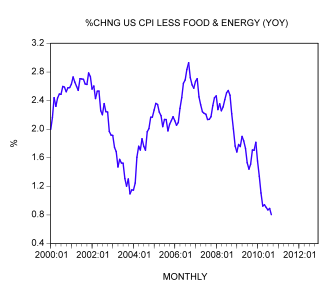This article was published in The Jewish Chronicle on the 5th of January 2012.
In 2011, an important centenary passed pretty much unremarked. On December 16 1911, the National Insurance Act received royal assent. It was the well-intentioned Act that destroyed the friendly societies and entrenched state welfare.
At the time, British government spending was under 15 per cent of GDP. The World Wars pushed state spending to around 46 and 70 per cent of GDP respectively and the peacetime trend was established. From about a quarter of GDP in 1920, by 1970, spending grew to match Great War levels.
Governments have always paid for themselves through taxation, borrowing and currency debasement. Tax revenues shot up quickly from a few per cent of GDP in 1911 to 40 per cent in the late ’40s.
After a slight respite in the ’50s and early ’60s, taxation passed 40 per cent of GDP again in about 1970. It has stayed thereabouts ever since.
Having hit an apparent limit to taxation in 1970, governments did not restrain themselves: borrowing and currency debasement took over as they indulged in deficit spending.
Since Nixon ended the Bretton Woods system in 1971, the world has had an institutionally inflationary monetary system. The British money supply grew from a few tens of billions of pounds to £700 billion in the spring of 1997, before tripling to more than £2.2 trillion in January 2010.
With so much new money being loaned into existence, no wonder governments have been consistently able to run deficits. And no wonder wealth inequality has widened in the face of redistributive measures, real capital has been destroyed in the North and our economy has reorientated towards the source of new money: the City and the South East.
I believe the forces at work in this crisis run deeper than is commonly understood. For 40 years, the promises of politicians in excess of what could be funded through taxation have ultimately been paid for by increasing the money supply. That created an illusion of prosperity, fostered unjust economic processes and broke the banking system before the bubble burst.
The first crisis of state socialism was easy to spot: the Wall came down. One hundred years after the National Insurance Act set the trajectory of state provision, those of us serious about prosperity and welfare must look at the mess in the West and ask: “Is this the second crisis of state socialism?” We may not like it but the answer is “Yes.”




A very good article.
Of course there is no government “insurance” it is a Ponzi scheme. There are no investments.
And they (the political elite) de facto destroyed mutual aid – the Friendly Societies and so on.
The destruction of real communities in favour of the phony “community” of state finance.
The middle classes did not use to care about this – as they still had their private pensions.
However, since 1997 (due to taxation, the raids of Mr Brown, and the vast CREDIT BUBBLE – supported by all parties)there has been a total revolution – which is still continuing (it is like a slow motion train wreak).
The middle classes may not know it yet (although some do know it) – but soon their private pensions will be worthless (utterly worthless) those that still have private pensions at all, they will be placed in the same terrible position as people in manual occupations.
Dependent on state support – support that is INEVITABLY heading for bankruptcy.
I would say that the economy in 1964 (for all its terrible faults) was still connected to reality.
Most shares were owned by individuals (not institutions – controlled by fund managers who are only concerned with their end of year bonus). And the levels of taxation and government spending (whilst very high indeed) were still, possibly, sustainable.
Also (and perhaps most important) the credit/money bubble was fairly small and the banking system (and so on) still had some connection to reality.
Then Douglas Home lost the election – and, I believe, what was left of Britain really slipped away.
Mrs Thatcher tried to fight back – but I suspect it was too late.
Lady Thatcher reminds me of the Emperor Probus – trying to restore the old standands (the probity) of Rome, only to be (eventually) cut down by his own soldiers.
It was all too late – and had been too late for long before Probus even became Emperor.